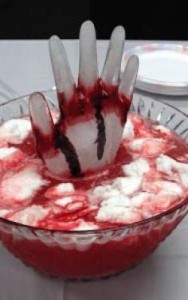 Do you love Halloween? Are you celebrating? I’m doing this extra blogpost today partly to remind you that I’m hosting a Virtual Halloween Party today on Facebook (4pm to midnight), and if any of you are on FB and enjoy the virtual parties to be found there, I hope you’ll come! It’s a fund-raiser for my friend Joyce, who needs to raise funds to stay on the kidney transplant waiting list, but it’s also a celebration of Halloween –what better time for a party? We have a number of nice gift giveaways planned, and we’ll be posting pictures and having conversations, playing games and doing mini-contests.
Do you love Halloween? Are you celebrating? I’m doing this extra blogpost today partly to remind you that I’m hosting a Virtual Halloween Party today on Facebook (4pm to midnight), and if any of you are on FB and enjoy the virtual parties to be found there, I hope you’ll come! It’s a fund-raiser for my friend Joyce, who needs to raise funds to stay on the kidney transplant waiting list, but it’s also a celebration of Halloween –what better time for a party? We have a number of nice gift giveaways planned, and we’ll be posting pictures and having conversations, playing games and doing mini-contests.
The party is by-invitation-only, so if we aren’t already “friends” on Facebook, send a friend request to me (Gail Eastwood-author) –or message me– and I’ll friend and invite you! (Or let me know if you want to know how to give a donation, even if you can’t come to the party!)
In my area of the U.S. the practice of trick-or-treating has really diminished in favor of  parties. Safer, I’m sure, but there was always a kind of thrill to roaming in the dark and going door-to-door. Halloween isn’t anything our Regency characters would have participated in. And in Great Britain, even now I would venture to say it is overshadowed by Guy Fawkes Day.
parties. Safer, I’m sure, but there was always a kind of thrill to roaming in the dark and going door-to-door. Halloween isn’t anything our Regency characters would have participated in. And in Great Britain, even now I would venture to say it is overshadowed by Guy Fawkes Day.
 Bonfires! Fireworks! Those are fun, but do they get to dress up in costumes? Do they have Guy Fawkes Day parties? Oh, wait. Yes, yes they do. But I still say I’d rather have candy than gunpowder.
Bonfires! Fireworks! Those are fun, but do they get to dress up in costumes? Do they have Guy Fawkes Day parties? Oh, wait. Yes, yes they do. But I still say I’d rather have candy than gunpowder.
The roots of Halloween are very ancient, as most people know. The name comes from All Hallows Eve, the night before the Christian observance of All Saints Day (November 1, Hallowmass), established by Pope Gregory in the 8th century. But the Celtic celebration of Samhain (“summer’s end”) on October 31 is much older. Samhain was the night before the Celtic new year began, when it was believed the boundary between the living and the spirit worlds grew thin. The Celts may have believed the living could commune with the dead at such a time, see into the future, or even that spirits could return to earth.  Bonfires, the wearing of costumes to confuse the walking spirits, and the telling of fortunes may have been part of the Celtic traditions.
Bonfires, the wearing of costumes to confuse the walking spirits, and the telling of fortunes may have been part of the Celtic traditions.
Some sources also throw in two Roman celebrations, the festivals of Feralia, honoring the passing of the dead, and of Pomona, a goddess of fruit and the harvest, also held at the time of the change in seasons. Mix in the medieval practice of “souling”, when the poor would go door-to-door on All Hallows asking for handouts in exchange for saying prayers for the dead, and you can see a lot of the ingredients for the evolution of Halloween.
My fellow Riskies have already written some posts you might like to revisit this weekend. Elena did a lovely one about jack o’lanterns all the way back in 2008 (posted Oct 29). Amanda talked about the holiday origins in 2011 (Oct 25), and back in 2009 she did a Halloween post about the ghosts in the Tower of London. For more ghosts plus witches in the UK, revisit Elena’s post from last year (Oct 31, 2014).
In case those aren’t enough to occupy you, here are a few more articles you may enjoy:
“Slutty Halloween Costumes: a Cultural History”, which makes a case that Halloween has always been about sex: http://www.fastcodesign.com/1665320/slutty-halloween-costumes-a-cultural-history
And in defense of those who follow the Wiccan religion, “What’s Witchcraft? Six Misconceptions about Wiccans”: http://www.livescience.com/39119-myths-about-witches-wiccans.html?li_source=LI&li_medium=more-from-livescience
For the candy-lovers among us: http://www.theatlantic.com/health/archive/2010/10/how-candy-and-halloween-became-best-friends/64895/
And finally, I couldn’t resist including “Top Five Halloween Myths Debunked”: http://www.livescience.com/5148-top-5-halloween-myths-debunked.html
Happy Halloween!

